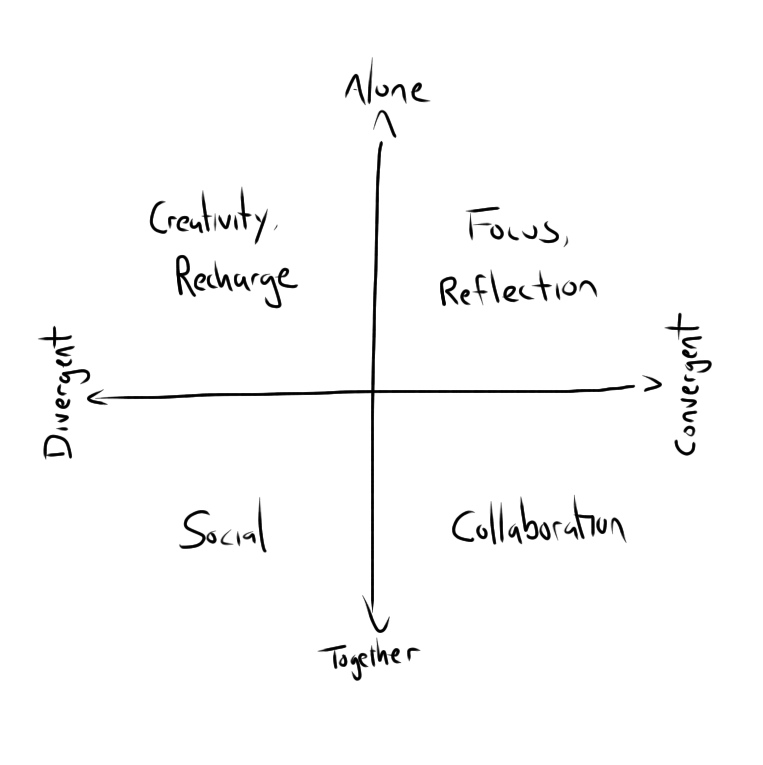Clutter Your Way to Creativity
/We'll keep with a theme this week: the spaces around us matter. And this bit of research,* published by a team from the University of Minnesota in Psychological Science, is worth paying attention to: it's an excuse to stop cleaning. Forever.
In a recent series of experiments, Kathleen Vohs and her colleagues set out to test the effect of desk and office cleanliness on productivity, creativity, and decision making. Subjects were first asked to fill out questionnaires in an office. Some did so in a prim and well-ordered space, while others did so in one cluttered supplies and strewn with papers. Afterwards, those in the clean office behaved in a more "pro social" fashion: they donated more money to charity when given the opportunity, and they grabbed apples rather than chocolate on their way out the door.
But messiness has its advantages as well. In a second experiment, subjects were tasked with coming up with new uses for ping pong balls. Although the clean room subjects generated the same number of uses as those in the messy room, the latter group came up with ideas that were rated as more interesting and creative by a panel of two external judges. This creative bent also carried through in a third experiment, which found participants in a messy room to be more likely to prefer a novel smoothy flavor over the conventional one. The conclusion is that "disorderly environments seem to inspire breaking free of tradition, which can produce fresh insights", while orderly environments "encourage convention and playing it safe."
None of this is exactly new, as there's apparently been an "anti-anticlutter movement" that's been singing the praises of crammed closets and messy desks for some years now. At the same time, it's always nice to see wishful thinking be put to the test. And if nothing else, it's a great excuse to put off cleaning your desk for another day.
I can only assume it works for the dishes in the sink too.
*Vohs, Kathleen D., Joseph P. Redden, and Ryan Rahinel. 2013. "Physical Order Produces Healthy Choices, Generosity, Conventionality, Whereas Disorder Produces Creativity." Psychological Science.



